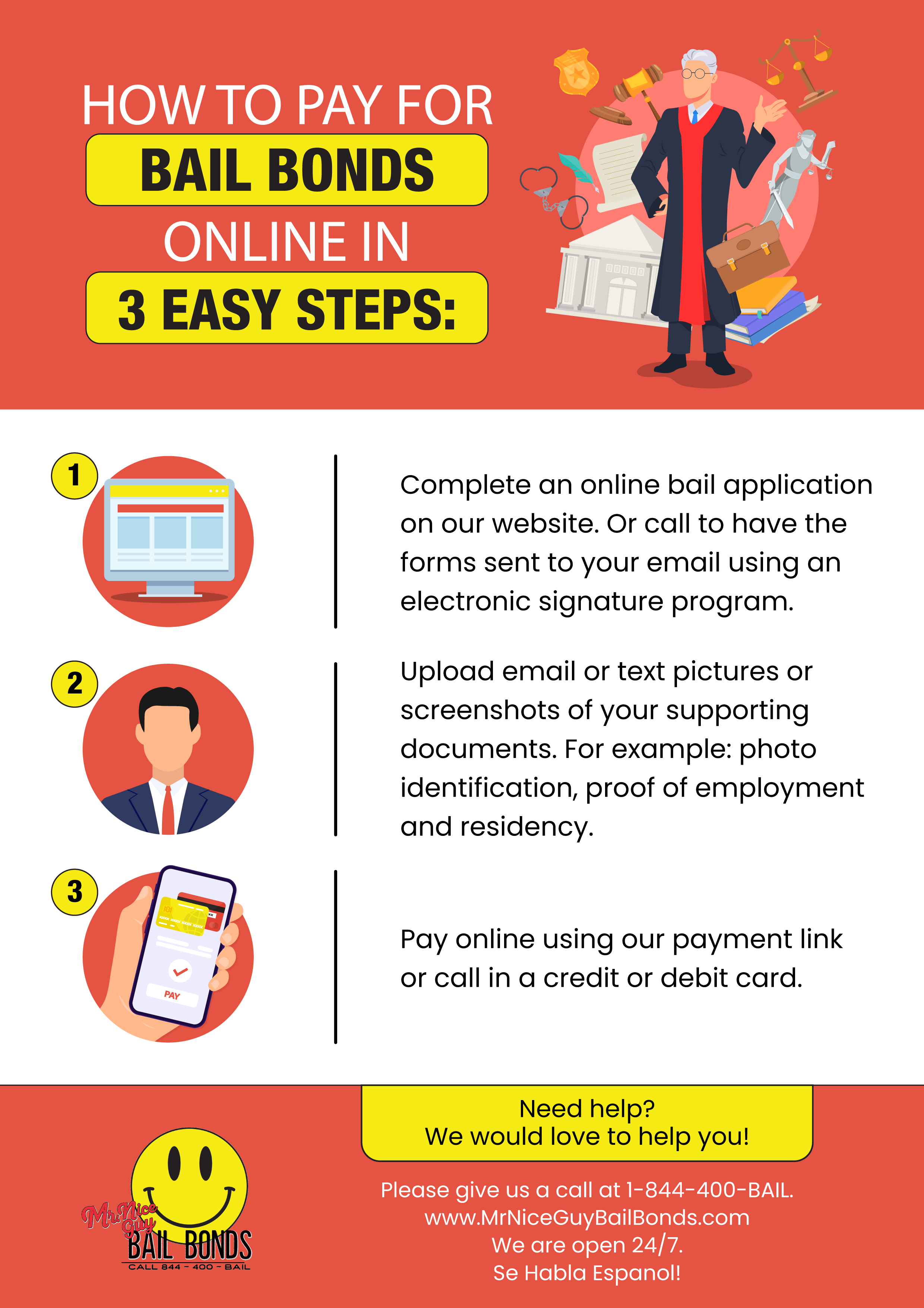Your Total Guide to Recognizing Bond Bond Terms
Navigating the complexities of bail bond terms and problems is a vital part of properly managing legal difficulties. Various kinds of bail bonds and their associated prices can significantly influence the decision-making process.
What Is a Bond Bond?
A bail bond is a legal agreement between a defendant, a bondsman, and the court, making certain that the accused will show up for scheduled court process in exchange for their launch from custodianship. bail bonds service. This legal tool serves to shield the rate of interests of the court by offering an economic reward for the offender to adhere to judicial requirements
Upon the offender's launch, the bail bond continues to be effectively up until the final thought of the litigation. Failure to appear in court may lead to forfeit of the bail amount, and the bondsman may seek the defendant to recuperate the expenses incurred. bail bonds service. Understanding the dynamics of bail bonds is crucial for defendants and their families as they browse the judicial procedure.
Secret Terms Described
Comprehending bail bonds involves acquainting oneself with numerous crucial terms that are essential to the process. One important term is "bail," which refers to the quantity of cash needed to secure the release of an offender from custody while waiting for test. "Bondsman," or "bail bondsman," is an additional important term, denoting a specialist that gives the essential funds for bond in exchange for a cost, normally a portion of the overall bail amount.
" Security" is likewise significant; it represents possessions vowed by the offender or co-signer to make sure the bond's repayment. If the offender stops working to appear in court, the security might be surrendered. The term "indemnitor" describes the individual that agrees to be liable for the bond, commonly a household participant or close friend of the implicated.

Sorts Of Bail Bonds
Numerous sorts of bond bonds offer various functions and satisfy specific circumstances in the lawful system. The most common type is the guaranty bond, where a bondsman guarantees the offender's look in court for a cost, commonly 10% of the bond amount. This kind is commonly used due to the fact that it permits people who can not manage the complete bail to safeguard their release.
An additional type is the cash money bond, which requires the complete bail total up to be paid in cash money to the court. This choice is frequently chosen for reduced bail quantities, as it guarantees the offender's release without entailing a bail bondsman (bail bonds service). If the defendant appears in court as called for, the cash is reimbursed at the verdict of the situation
In addition, there are home bonds, where realty is used as security for the bail quantity. This can be a viable choice for people that have residential property yet lack liquid funds.
Finally, government bonds put on government situations and are typically much more difficult to get, frequently needing the help of a specialized bail bondsman. Comprehending these variations is vital for browsing the bond system effectively.
Common Misconceptions
Misconceptions concerning bail bonds commonly lead to confusion for offenders and their family members. In reality, bail serves as an economic guarantee that the offender will certainly show up at their set up court hearings.
An additional typical false impression is that all bond bonds are the very same. There are several kinds of bond bonds, including surety bonds, cash bonds, and home bonds, each with unique attributes and demands. Understanding these differences is critical for making educated choices.
Furthermore, lots of people believe that bail bond representatives are just shylock. In reality, certified bail bond agents run within a managed structure, charging a premium for their solutions, which is normally a portion of the total bail quantity.
Lastly, some think that only wealthy individuals can afford bond. Bail bond services are developed to aid those that may not have prompt accessibility to big sums of money, permitting a wider sector of the population to protect their release while awaiting test. Clear understanding of these misunderstandings can dramatically minimize stress and anxiety during a tough time.
Understanding Charges and Expenses
While navigating the bail bond procedure, it is important to be mindful of the fees and expenses related to safeguarding a bond. Bail bonds normally call for a non-refundable costs, which is a percentage of the total bail amount set by the court. This premium normally varies from 10% to 15%, relying on state laws and the bail bond company's plans.
Along with the costs, there might be various other charges involved. These can include administrative fees for processing the bond, collateral fees if possessions are needed to protect the bond, and prospective revival charges if the bond needs to be prolonged. It is crucial to ask the bail bond representative for a detailed breakdown of all costs to stay clear of unforeseen costs.
Final Thought

Comments on “Get Started with Bail Bonds Service Now.”